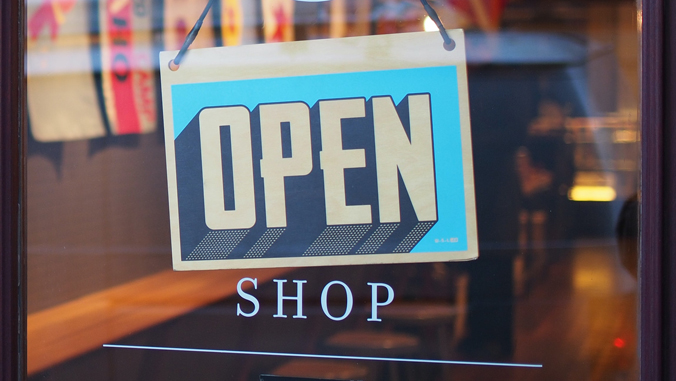
Faced with a summer spike in COVID-19 cases due in large part to the Delta variant, new COVID-19 vaccination and testing mandates for businesses have made a significant impact on vaccination uptake, according to research released on October 12.
The University of Hawaiʻi Economic Research Organization (UHERO) and the Pacific Alliance Against COVID-19 (PAAC), in partnership with the City and County of Honolulu and other organizations, conducted a representative survey of businesses and community organizations in Hawaiʻi.
In total, 1,987 Hawaiʻi businesses participated in the survey, with more than 80% located on Oʻahu, 8% in Hawaiʻi County, 8% in Maui County and 3% in Kauaʻi County. More than 90% of businesses had 100 or fewer employees, in which information about their likelihood to adopt mandates is less well-known. More than 20 sectors were represented in the survey, including food and beverage (22.7%), health services (15.4%), tourism (12.9%), retail (12.6%) and non-profit organizations (10.9%).
Unlike the previous UHERO–PAAC survey that was rolled out prior to the mandates, and which focused on understanding the willingness of businesses to adopt workplace restrictions for employees and customers, the new survey concentrates on the impact that mandates have had on Hawaiʻi businesses and efforts to increase vaccination rates.
The main survey findings include:
- Mandates: More than 60.5% of businesses have imposed a mandate for their employees, with 22% of businesses requiring vaccination or regular COVID-19 testing and 28.3% mandating the vaccine for all employees, among other protocols.
- Cost of testing: When testing is elected, the employer pays for the test in 20.4% of the cases, whereas the cost is the responsibility of the employees in 37.6% of the cases and relies on other sources (such as state and city free testing) in 42.1% of the cases.
- Effect on vaccination uptake: Mandates have had a significant impact on vaccination uptake. Before mandates were announced, businesses with a mandate reported an 84.4% vaccination rate among employees. After mandates were announced, an additional 8% of employees are estimated to have been vaccinated; 5.9% of employees are estimated to elect regular testing; and 1.7% are estimated to have been dismissed or resigned. In contrast to businesses with a mandate, businesses without a mandate have achieved a significantly lower vaccination rate of 76.1%, providing opportunities for the government to expand vaccination rates by targeting those businesses.
- Effect of vaccination uptake across counties: In Honolulu, 85.1% of employees were vaccinated before the mandate; an additional 8.2% are estimated to have been vaccinated after the mandate; and 4.9% are estimated to be doing regular testing. By contrast, in Maui County, 69.3% of employees at businesses with a mandate were vaccinated; 10.4% are estimated to have been vaccinated after the mandates; and 13% are estimated to have elected regular testing.
“This study shows the first quantification of the effects of mandates on vaccine uptake,” said Ruben Juarez, an economics professor and UHERO research fellow, and one of the survey’s lead authors. “The increased vaccination rates is an encouraging indication of the efficacy of these mandates on business in Hawaiʻi, with far-reaching implications for other parts of the country implementing similar strategies to mitigate COVID-19.”
Businesses see different effects from mandates
The survey said businesses that adopted a mandate have been affected in a variety of ways. About 35% of businesses report a decrease in the number of customers while only 8.2% report an increase in number of customers; 39.5% of businesses had a decrease in revenue while only 7% had an increase in revenue; and 25.2% of businesses saw an increase in customer resistance and complaints while 7.8% saw a decrease in customer complaints.
70.5% of businesses support the mandate for employees; 17.5% of businesses don’t support it; and 11.8% are unsure. The overwhelming reasons businesses said they support the mandate are to protect the community, decrease the spread of COVID-19, protect employees, increase safety at work and to protect customers. The reasons or barriers why businesses don’t support the mandate include the belief that it is not legal and/or constitutional, due to employee resistance and personal preference of the employer.
Almost 2 in 3 businesses (61.75%) support vaccine passports for customers; 22.2% of businesses don’t support vaccine passports; while 15.9% are unsure. The reasons why businesses support vaccine passports for customers mirror those from mandates for employees. The main reasons or barriers as to why businesses don’t support the mandate for customers include customer resistance, and the belief that it is not their companies’ responsibility, in addition to the ones for vaccine mandates for employees.
About 54.48% of businesses indicated that they would like to receive funding to provide take-home tests for employees; 48.5% indicated the need for technical support for checking vaccination or testing status; and 36.9% and 38.77% requested educational resources for employees and customers, respectively. In addition, around 40% indicated their willingness to learn more about COVID-19 vaccination and testing events.
The Department of Economics and UHERO are housed in the College of Social Sciences.
Read more on UHERO’s website.
This work is an example of UH Mānoa’s goal of Excellence in Research: Advancing the Research and Creative Work Enterprise (PDF), one of four goals identified in the 2015–25 Strategic Plan (PDF), updated in December 2020.

